The most common garden weeds to look out for and what to do with them if they invade your garden
When it comes to weeds, these are the usual suspects to watch out for in your garden
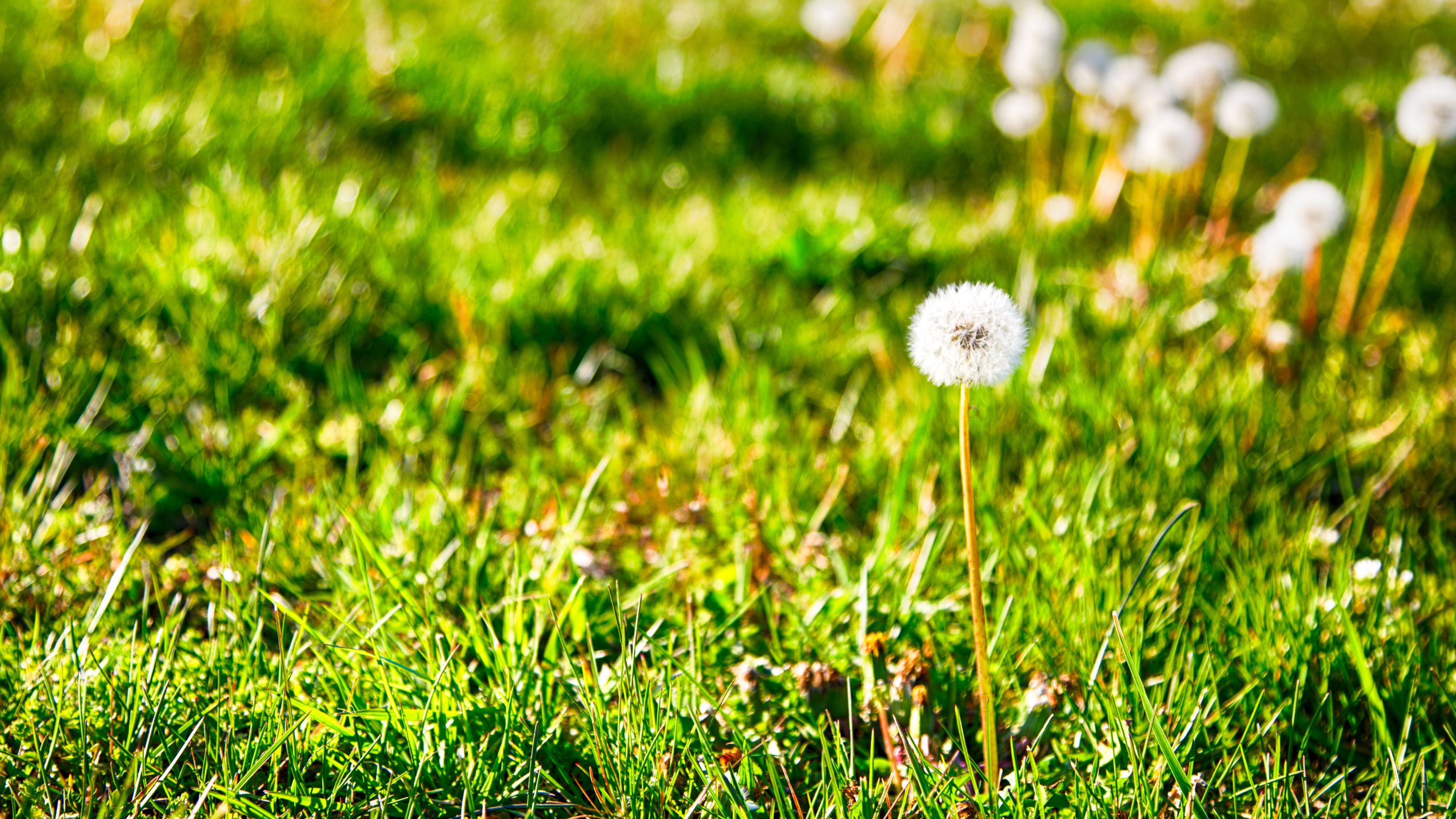

Need help identifying the most common garden weeds? You've come to the right place, whether you're interested in learning how to get rid of weeds naturally or use more intense methods to kill weeds off for good.
It's important to know your enemy. Indeed, many gardening pros say that one of the biggest weeding mistakes you can make is failing to identify the invasive plants before you set to work banishing them from your backyard – particularly as so many can be surprisingly beneficial to your garden.
'All plants have a place, so a weed really is only a plant growing somewhere you don’t want it to grow,' says Morris Hankinson, director of Hopes Grove Nurseries, who notes that 'many common "weeds" are useful'.
Here's our round-up of the common weeds to watch out for, and what you should do if they appear in your garden.

Morris Hankinson is the founder and managing director of Hopes Grove Nurseries Ltd, the UK’s only specialist grower-retailer of hedging plants. He established the thriving business in 1992, shortly after graduating with a Commercial Horticulture Degree from Writtle College, Essex.
1. Bindweed
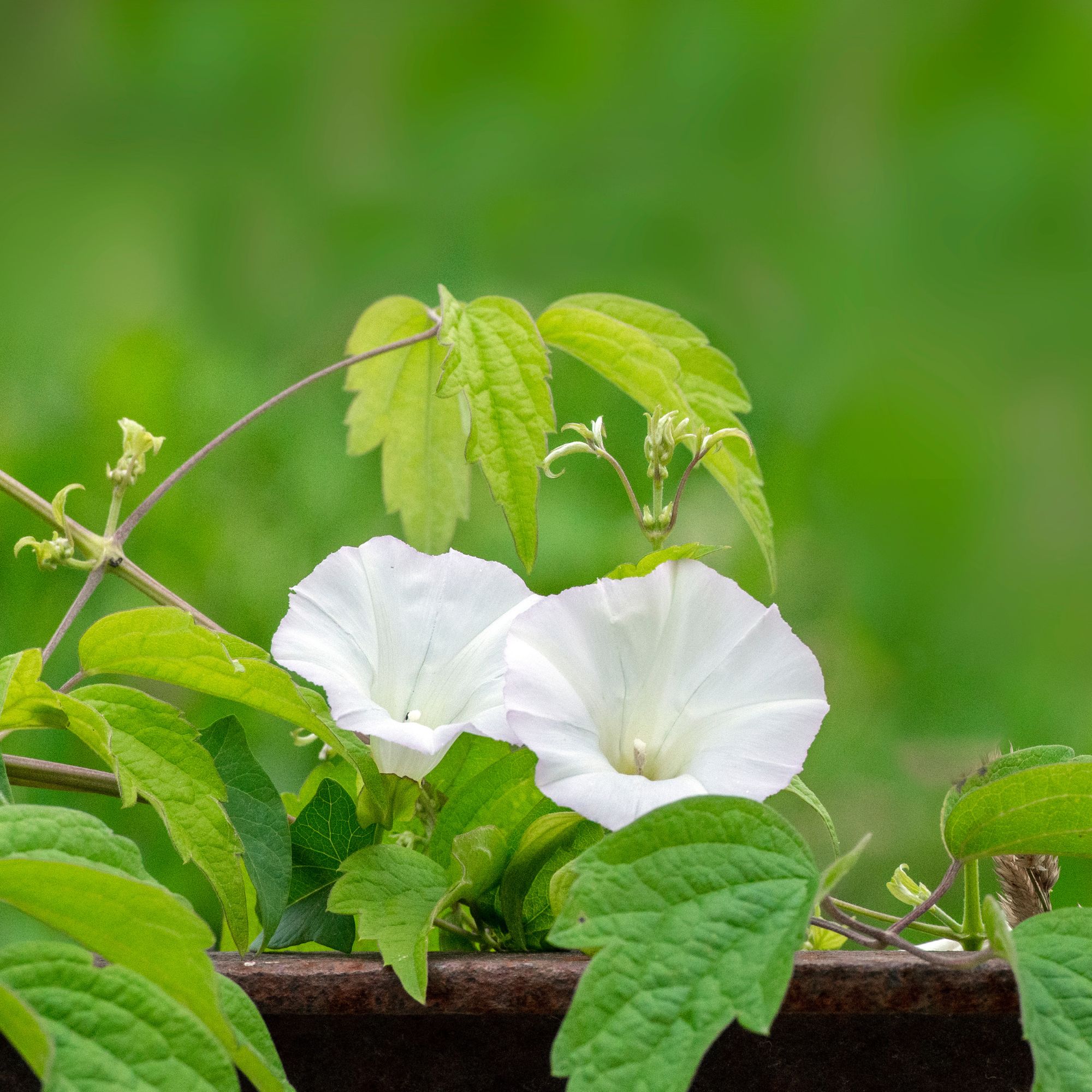
One of the most common garden weeds, the pretty flowers on this invasive plant can make it a welcome addition to any wildlife garden (pollinators love them!).
'There are two types of bindweed; calystegia sepium (hedge bindweed) and convolvulus arvensis (field bindweed),' says Morris.
'They are both similar although hedge bindweed is the one you will see creeping through hedges and binding itself around plants, before producing big white trumpet shaped flowers. Field bindweed is lower growing and often has smaller white or pink flowers.'
Get the Ideal Home Newsletter
Sign up to our newsletter for style and decor inspiration, house makeovers, project advice and more.
The best way to deal with bindweed is to dig it up by the roots. 'The plant can be weakened by continuously cutting it back and pulling up roots despite its ability to continue growing,' adds Morris. 'If you turn your back, it will pop right back up to tease you!'
2. Chickweed
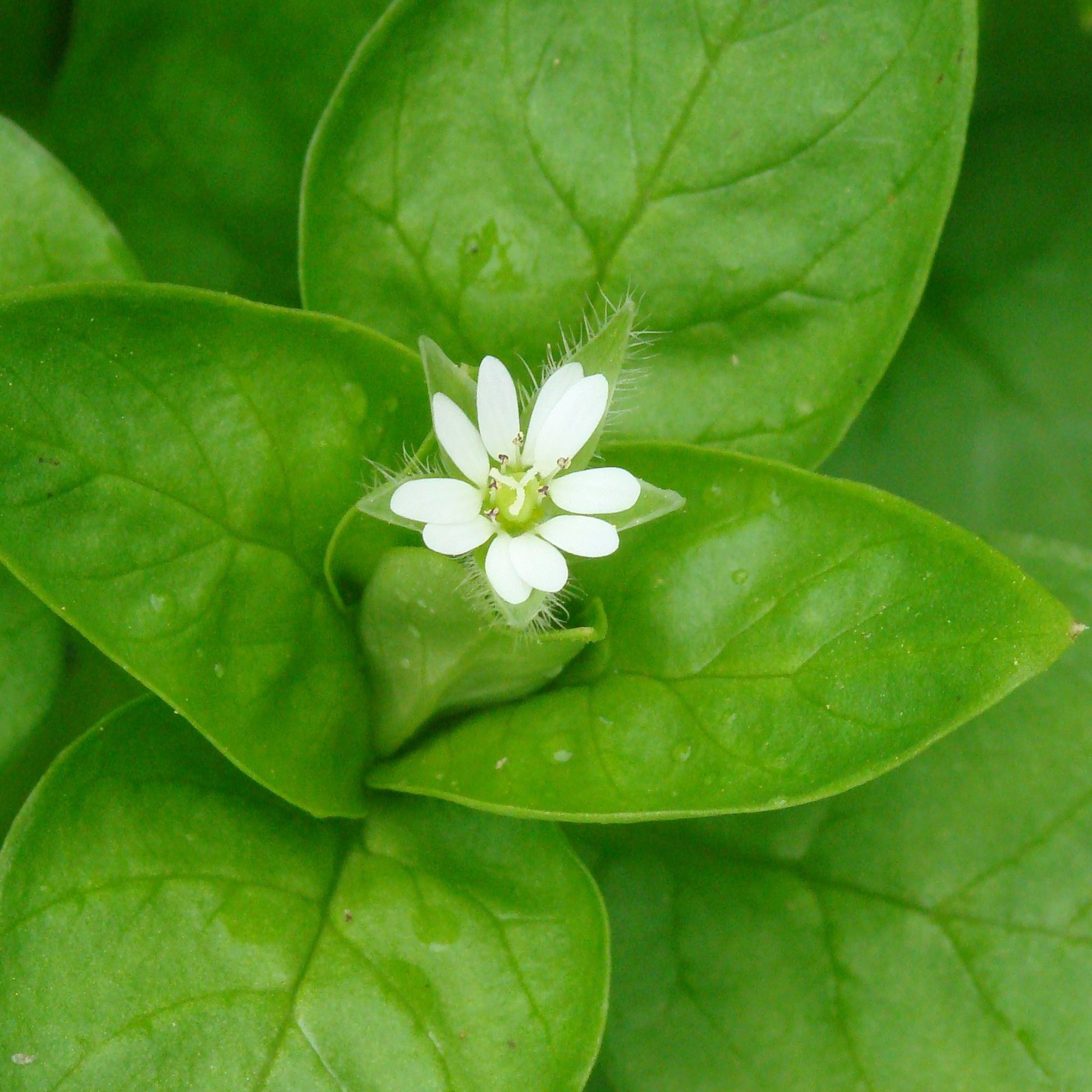
Another surprisingly beautiful common garden weed, chickweed is low growing with small white flowers.
'It is a UK native plant which is great for insects,' says Morris, who adds that many small birds eat the seeds and pollinators enjoy the flowers.
'It generally isn’t a nuisance until it sets seed and can then grow all over the garden. And, as an edible and medicinal plant, it has many uses so don’t be too quick to remove it.'
If it has taken over your garden, use something like the Spear & Jackson Kew Gardens 3540KEW Carbon Steel Dutch Hoe from Amazon to hoe the area regularly.
'If you have a large area of chickweed, cover it over with a heavy mulch,' he adds.
3. Creeping buttercup
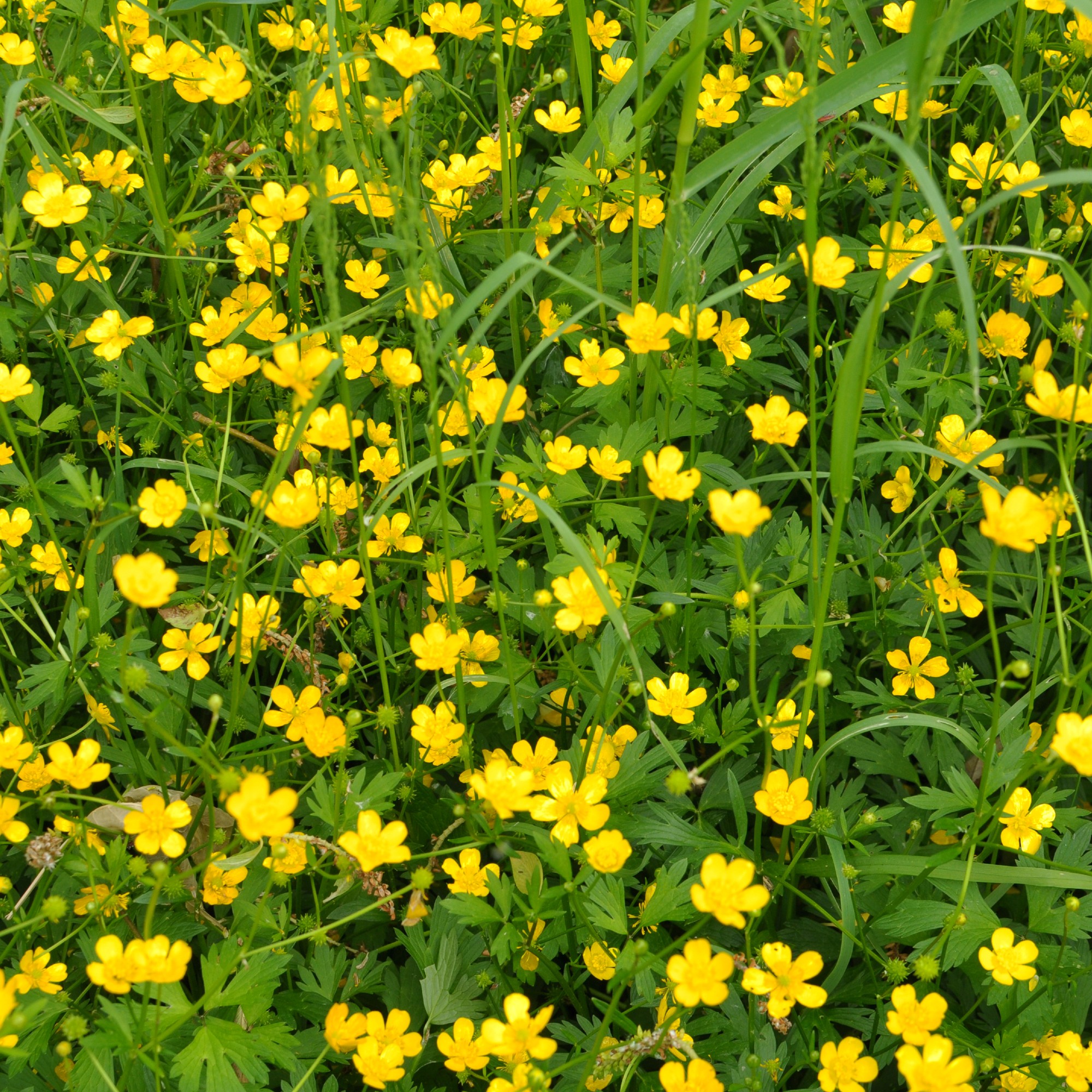
The bright yellow flowers of creeping buttercup mean that it's fast shedding its status as one of the most common garden weeds and getting rebranded as a wonderful wildflower garden idea instead.
That being said, the plant boffins at the Royal Horticultural Society (RHS) say 'its spreading habit and dense network of shoots, runners and roots can make it unwelcome in some parts of the garden'.
Try deadheading the plants, hoeing off seedlings, or smothering them with cardboard and woodchips.
4. Plantain
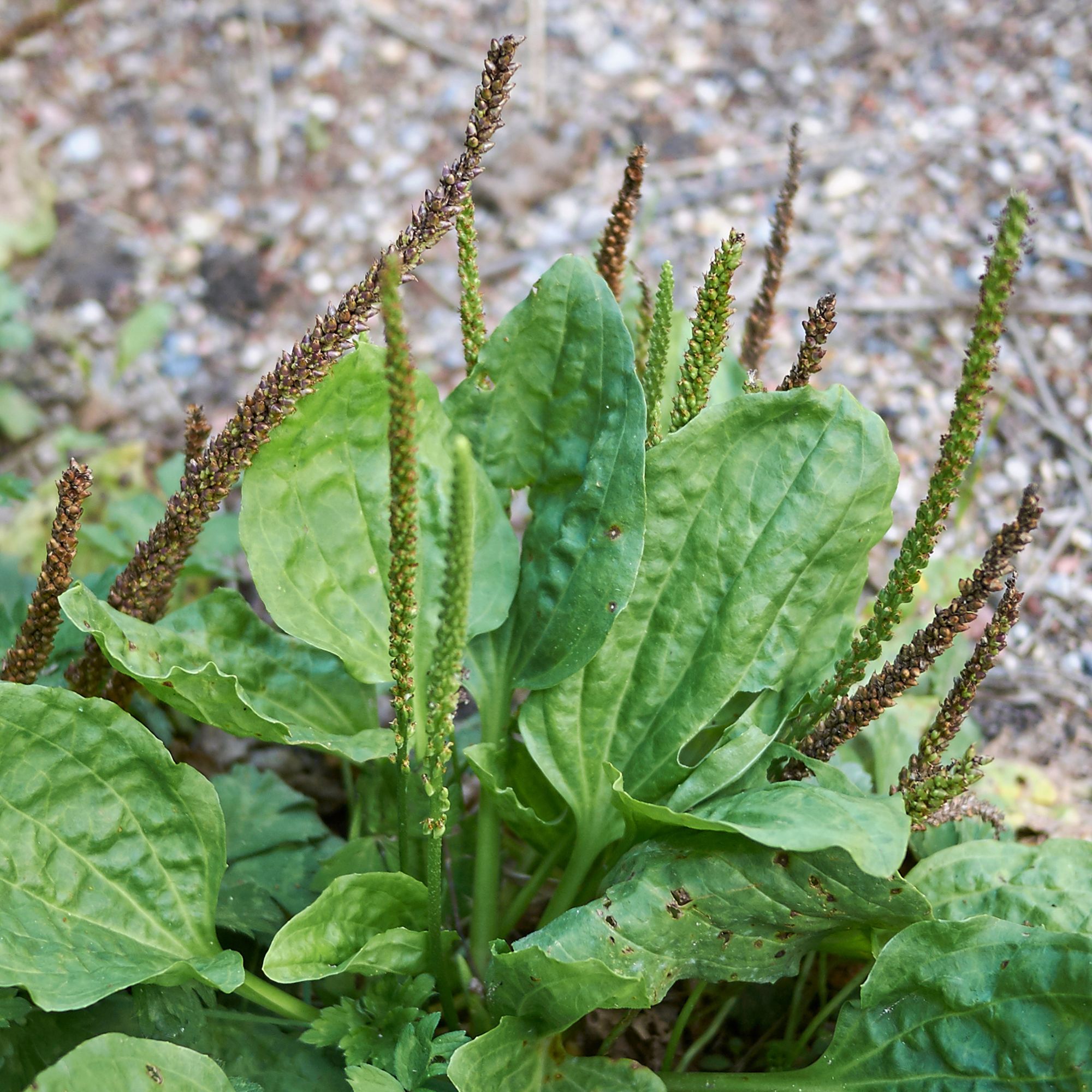
Plantain (aka plantago major) spreads rapidly, and so is generally considered one of the most common garden weeds. 'However, this well known plant is also an antihistamine, antifungal and antioxidant,' says Morris, who adds that it can even be used to help to calm nettle stings.
'The leaves grow in a rosette and the thin stems grow tall with the flower heads in white and brown and produce thousands of seeds,' he says, 'so use a hand trowel and fork to lift up ensuring you have pulled out all of the roots.'
5. Couch grass
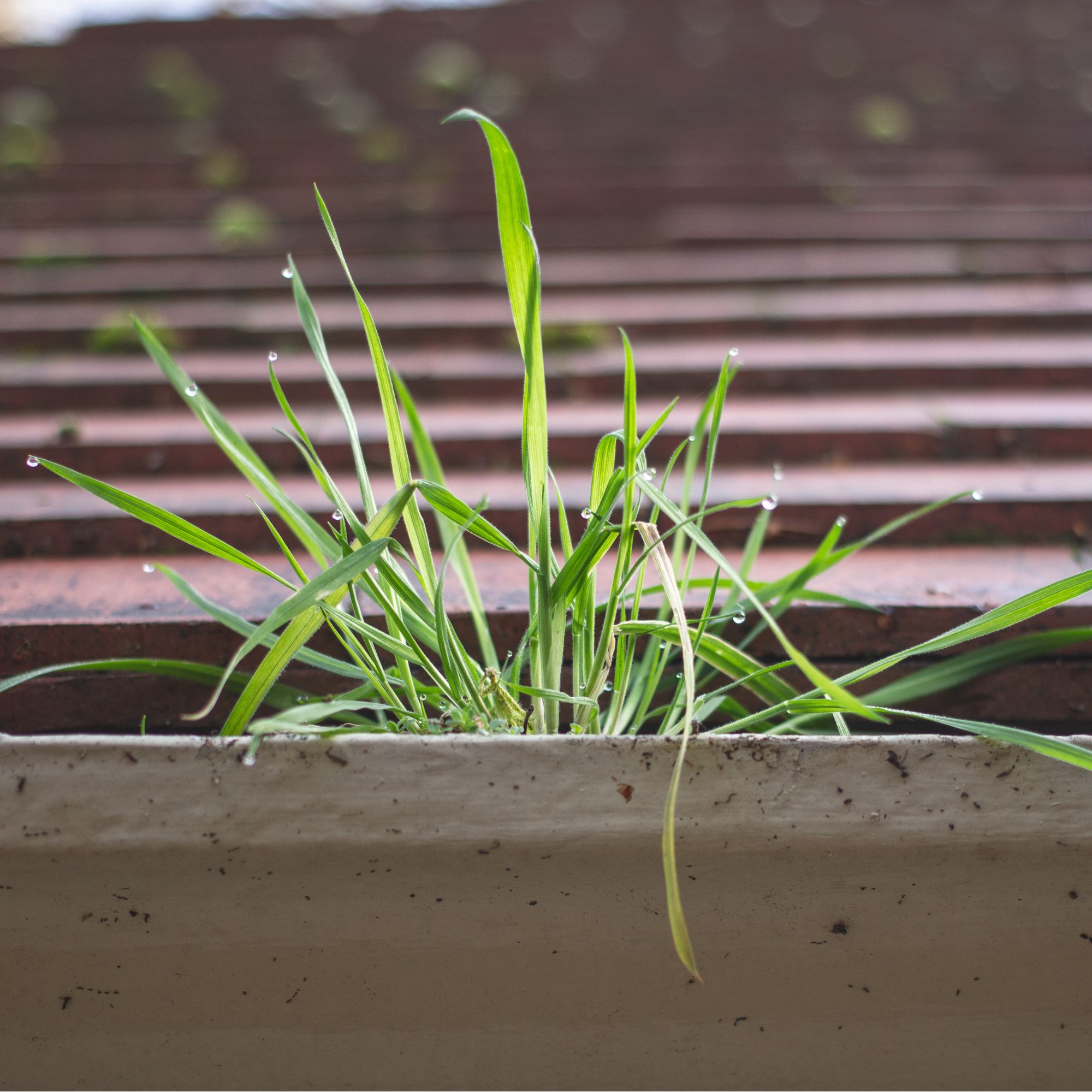
'Butterflies and moths love couch grass (aka elymus repens),' says Morris.
'However, if you don’t want it growing in your garden, non chemical methods are effective. The fast growing rhizomes can soon creep into your garden beds and lawn and it does also grow from seed. So you could choose to allow a wildflower area with some couch grass in or pull up including as much of the root as you possibly can.'
FAQs
What weeds are in my garden in the UK?
The most common garden weeds in the UK are:
- Dandelions
- Nettles
- Couch grass
- Ground elder
- Bindweed
- Chickweed
- Plantain
- Creeping buttercup
We guess that, now you're acquainted with the most common garden weeds, it's up to you to decide whether they're friend or foe. After all, if you keep on top of their rapid growth, many can make a pretty, useful, and hardy addition to your outdoor space...

Kayleigh Dray became Ideal Home’s Acting Content Editor in the spring of 2023, and is very excited to get to work. She joins the team after a decade-long career working as a journalist and editor across a number of leading lifestyle brands, both in-house and as a freelancer.
-
 ‘Städdag’ is the Swedish cleaning method I’ve been using to clean my home for months — this is why I’ll never clean any other way
‘Städdag’ is the Swedish cleaning method I’ve been using to clean my home for months — this is why I’ll never clean any other wayThe Scandinavians (and now me) swear by it
By Lauren Bradbury
-
 Dunelm has just launched a heatwave-busting bed sheet that's only £9 – it will help eliminate hot and sweaty nights during the heatwave
Dunelm has just launched a heatwave-busting bed sheet that's only £9 – it will help eliminate hot and sweaty nights during the heatwaveToo hot and sweaty at night? Your bed sheets could be the problem, and Dunelm has a solution
By Amy Lockwood
-
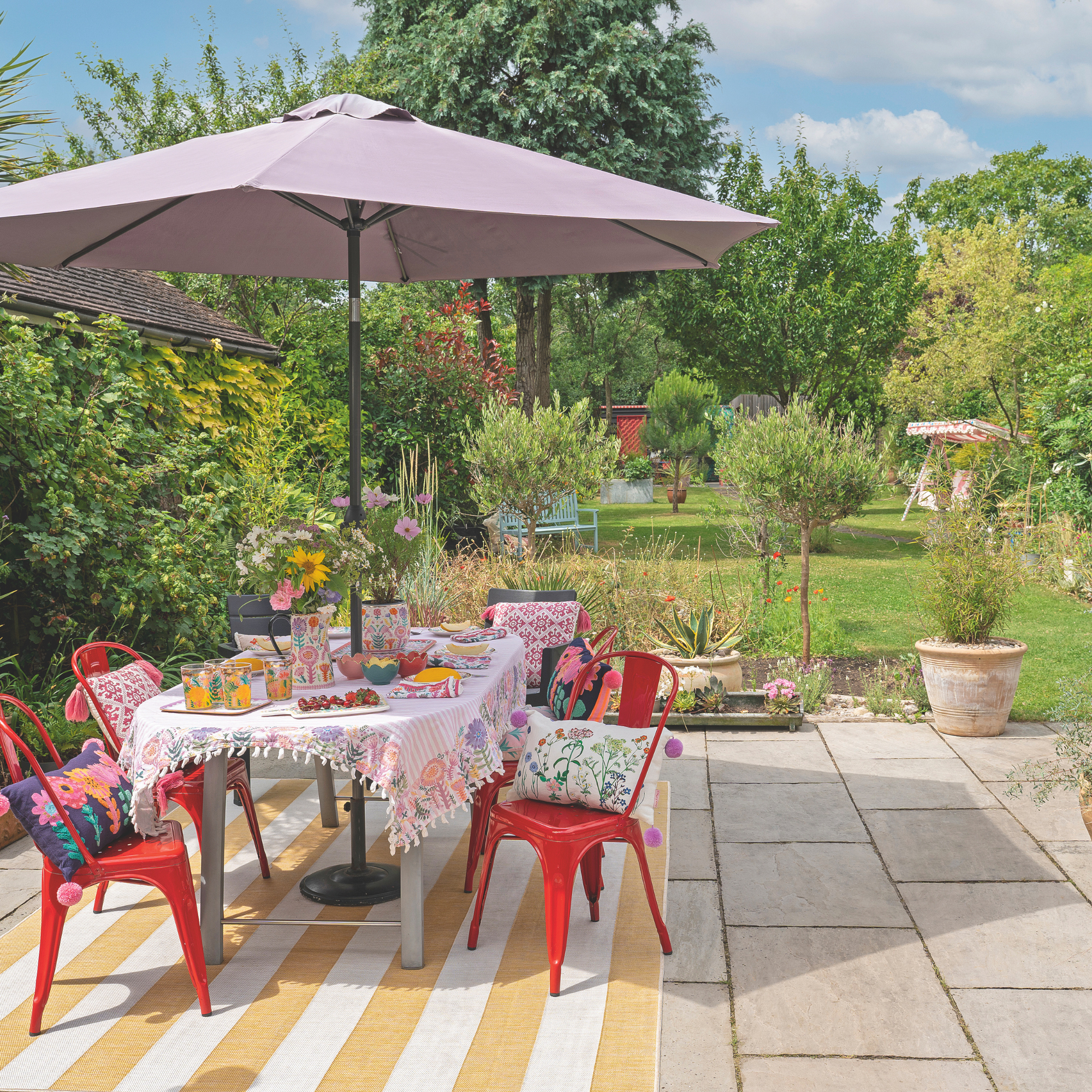 The one-year decluttering method is the key to clearing garden clutter this bank holiday – experts say it’s one of the simplest approaches
The one-year decluttering method is the key to clearing garden clutter this bank holiday – experts say it’s one of the simplest approachesBanish garden clutter with this simple and effective method
By Kezia Reynolds